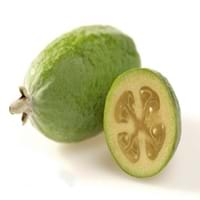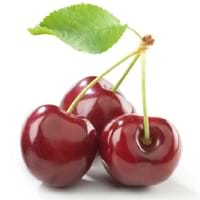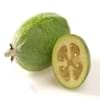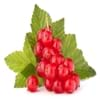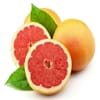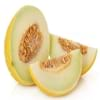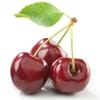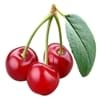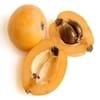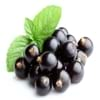Health Benefits
Anti depressant, Cancer prevention, Reduces nervous tension, Treatment of alzheimer's disease, Treatment of Lung disease
Arthritis prevention, Cancer prevention, Gout treatment, Heart care, Muscle pain relief, Regulation of heart rate, Treatment of alzheimer's disease
General Benefits
Digestive aid, Helps in weight loss, Improves blood circulation, Strengthens bones, Treatment of common cold
Anti oxidant properties, Anti-inflammatory properties, Controls blood pressure, Cures headache, Sore throat treatment
Skin Benefits
Brightens and lightens complexion, Skin rejuvenation
Anti-aging benefits, Brightens and lightens complexion, Skin rejuvenation, Treatment of dark spots
Hair Benefits
Promotes longer and healthier hair, Protects hair
Acts as moisturizer, Protects hair, Regulates hair growth, Rejuvenates scalp
Allergy Symptoms
NA
Anaphylaxis, Breathing difficulty, Fainting, Hives, Itching, Nasal congestion, Nausea, Swelling of mouth, tongue or lips, Tingling sensation in mouth, Vomiting, Wheezing
Side Effects
Allergic reaction
Abdominal cramps, Allergic reaction, Bloating, Intestinal gas
Best Time to Eat
As a snack in the late afternoon, Don't consume at night and before bed, Eat the fresh ones, avoid mixing with any other foods, don't eat after meal., Morning time (before lunch)
Best if taken as a breakfast (or empty stomach), As a snack in the late afternoon, Don't eat after meal, Morning time (before lunch)
Vitamin A (Retinol)
Not Available
Vitamin B5 (Pantothenic Acid)
Vitamin C (Ascorbic Acid)
Vitamin K (Phyllochinone)
Phytosterol
Not Available
Calories in Fresh Fruit with Peel
Not Available
Calories in Fresh Fruit without Peel
Not Available
Calories in Frozen Form
Not Available
Calories in Canned Form
Not Available
Type
Tree fruit
Tree fruit
Season
Autumn, Winter
Summer
Varieties
Anatoki, Gemini, Kaiteri, Kakariki, Pounamu, Unique, Apollo, Den's Choice, Kakapo, Mammoth, Opal Star, Triumph and Wiki Tu
Vandalay, Stella, Tehranivee, Sonata, Whitegold, Symphony, Blackgold, Sunburst, Lapins, Skeena and Sweetheart
Texture
Succulent
Crunchy
Origin
Argentina, Brazil, Paraguay, Uruguay
Europe, Western Asia
Grows on
Not Available
Trees
Soil Type
Clay loam, Gravely loam, Sandy
Sandy
Climatic Conditions
Cold, Warm
Cold
Facts about
- Feijoa is called as "pineapple guava" in some countries.
- Feijoa tree is an ornamental plant that can also be used as hedge & windbreak.
- All parts of feijoa fruit are edible(skin is mostly discarded).
- The word cherry is derived from the Turkish town of Cerasus.
- In Oliver, British Columbia, a pie of 39,683 pounds was baked which holds the record of biggest cherry pie.
- National cherry cheese cake day is on April 23.
Top Producer
New Zealand
Turkey
Other Countries
Australia, Azerbaijan, India, Japan, United States of America
Austria, Chile, China, France, Germany, Greece, Iran, Italy, Poland, Romania, Russia, Serbia, Spain, Syria, Ukraine, United States of America, Uzbekistan
Top Importer
China
Russia
Top Exporter
New Zealand
Poland
Botanical Name
Acca sellowiana
Prunus avium
Synonym
Feijoa sellowiana or Orthostemon sellowianus
Not Available
Subkingdom
Tracheobionta
Tracheobionta
Division
Magnoliophyta
Magnoliophyta
Class
Magnoliopsida
Magnoliopsida
Family
Myrtaceae
Rosaceae
Species
A. sellowiana
P. avium
Generic Group
Myrtle
Rose
Compare Feijoa and Sweet Cherry
It is important compare Feijoa and Sweet Cherry as both the fruits have a different nutritional value. Their comparison can be done on the basis of their vitamin and mineral content, calories, benefits as well as characteristics, making it easier for us to choose the best fruit for our diet. Their general health benefits are as follows:
Feijoa Benefits: digestive aid, helps in weight loss, improves blood circulation, strengthens bones and treatment of common cold.
Sweet Cherry Benefits: anti oxidant properties, anti-inflammatory properties, controls blood pressure, cures headache and sore throat treatment.
Fruits are also used as a remedy for various hair problems. The hair benefits of Feijoa are: promotes longer and healthier hair and protects hair and hair benefits of Sweet Cherry are: acts as moisturizer, protects hair, regulates hair growth and rejuvenates scalp. Some fruits are known to cause allergic reactions. The allergy symptoms of first fruit are: na and the symptoms of second fruit are: anaphylaxis, breathing difficulty, fainting, hives, itching, nasal congestion, nausea, swelling of mouth, tongue or lips, tingling sensation in mouth, vomiting and wheezing. Get sorted Feijoa vs Sweet Cherry comparison with the help of fruit comparison tool by fruitvs.com.
